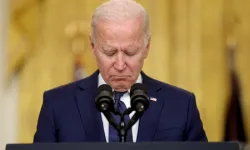The agreement elevating the EU's relations with Egypt to the level of a "strategic partnership" was announced during the visit of a delegation of leaders to Cairo.
Funding for the next 3 years
The agreement aims to boost cooperation in areas such as renewable energy, trade and security, and provide grants, loans and other funding over the next three years to support Egypt's faltering economy.
According to the summary of the agreement released by the EU, the proposed financing includes €5 billion in concessional loans and €1.8 billion in investments. Another 600 million euros will be provided as grants, including 200 million euros for managing migration.
Italian Prime Minister Giorgia Meloni, who traveled to Cairo with EU Commission President Ursula von der Leyen, the Greek, Austrian and Belgian prime ministers and the president of Cyprus, said such agreements were "the best way to address migration flows".
European governments have long worried about the risk of instability in Egypt, a country of 106 million people where foreign currency is hard to find and economic woes are forcing more and more people to migrate.
But financial pressure eased last month as Egypt struck a record deal for United Arab Emirates investment, expanded its program with the IMF and sharply devalued its currency.
Diplomats say the war in Gaza, where Egypt is trying to mediate between Israel and Hamas and increase humanitarian aid deliveries, and the conflict in neighboring Sudan, which has led to the world's largest displacement crisis, underscore Egypt's strategic importance.
The Funds were prepared in close cooperation with the IMF
Egypt says it is in line for a total of $20 billion in multilateral support after boosting its loan and economic reform program with the IMF.
A senior EU official said that most of the EU funds have just been allocated and are being prepared in close cooperation with the IMF, with €1 billion of the "macro-financial" loan fund to be delivered this year.
The remaining €4 billion is subject to approval by the European Parliament, the official added.
Transit through Libya
Egypt largely halted irregular migration from its northern coast in 2016, but recently there has been an increase in Egyptians trying to cross to Europe via Libya and the EU is already providing support to reduce these flows.
In recent months, the Greek islands of Crete and Gavdos have seen a huge increase in migrants, mostly from Egypt, Bangladesh and Pakistan.
"We must prevent the opening of new migration routes and we will work very closely with Egypt to do this," said Greek Prime Minister Kyriakos Mitsotakis, adding that both countries will work to open legal pathways for migration.













